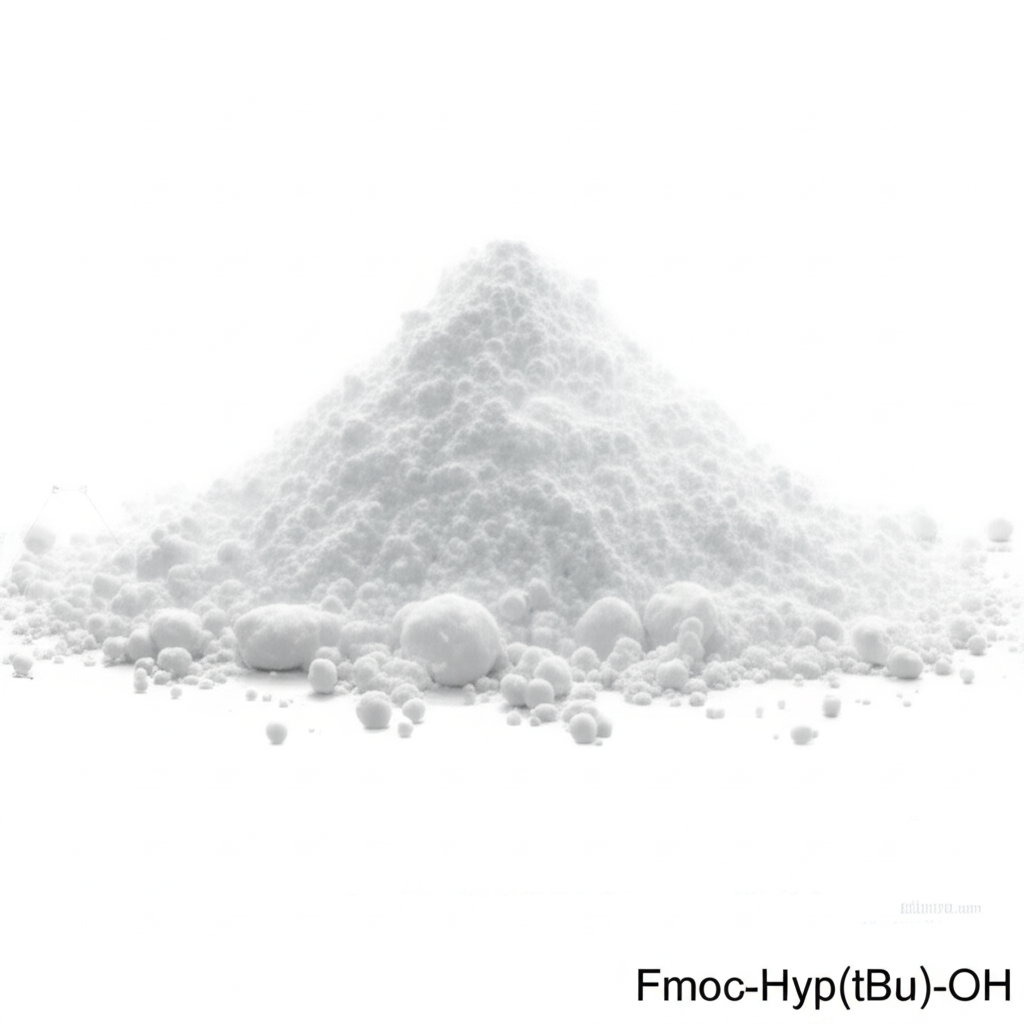Fmoc-Hyp(tBu)-OH: The Essential Fmoc-Protected Hydroxyproline Derivative for Advanced Peptide Synthesis
Unlock the potential of complex peptide sequences with Fmoc-Hyp(tBu)-OH, a high-quality building block essential for modern peptide synthesis and drug discovery. Discover its applications and benefits as a key reagent.
Get a Quote & SampleProduct Core Value

Fmoc-Hyp(tBu)-OH
Fmoc-Hyp(tBu)-OH is a critical Fmoc-protected amino acid derivative, vital for the efficient synthesis of peptides. Its unique structure, featuring a t-butyloxy protected hydroxyl group on the hydroxyproline residue and the Fmoc protecting group on the amine, makes it indispensable for solid-phase peptide synthesis (SPPS). As a reliable supplier in China, we offer this compound to facilitate your research and development in areas such as peptide synthesis and drug discovery.
- Leverage the power of Fmoc amino acids for your peptide synthesis projects. This compound is a key component in building complex peptide chains with precise sequences.
- Discover the applications of Fmoc-Hyp(tBu)-OH in drug discovery. Its use as a building block aids in the creation of novel therapeutic peptides.
- Understand the importance of CAS 122996-47-8 in chemical sourcing. This CAS number identifies a crucial reagent for organic synthesis and medicinal chemistry research.
- Source high-quality peptide synthesis reagents from trusted manufacturers. Our commitment to quality ensures consistent purity and performance for your critical applications.
Advantages Provided by the Product
Enhanced Peptide Purity
The specific protection strategy of Fmoc-Hyp(tBu)-OH contributes to cleaner reaction profiles, leading to higher purity in synthesized peptides, which is crucial when aiming for accurate peptide synthesis.
Versatile Fmoc Chemistry Compatibility
As part of the widely adopted Fmoc chemistry, this derivative integrates seamlessly into established SPPS protocols, making it easy to buy and use for your research.
Facilitates Complex Peptide Structures
The incorporation of this modified proline residue allows for the construction of peptides with specific conformational properties and biological activities, aiding in the development of novel peptide drugs.
Key Applications
Peptide Synthesis
Used extensively in solid-phase peptide synthesis (SPPS) to introduce hydroxyproline residues into peptide chains, contributing to structural integrity and biological function.
Drug Discovery
Serves as a vital building block in the development of peptide-based therapeutics, enabling the creation of molecules with enhanced stability and efficacy.
Chemical Research
An essential reagent for academic and industrial researchers exploring novel chemical entities and synthesis methodologies in organic chemistry.
Bioconjugation
Can be incorporated into peptides designed for bioconjugation, such as antibody-drug conjugates (ADCs), where precise chemical modification is key.
